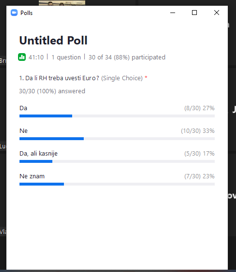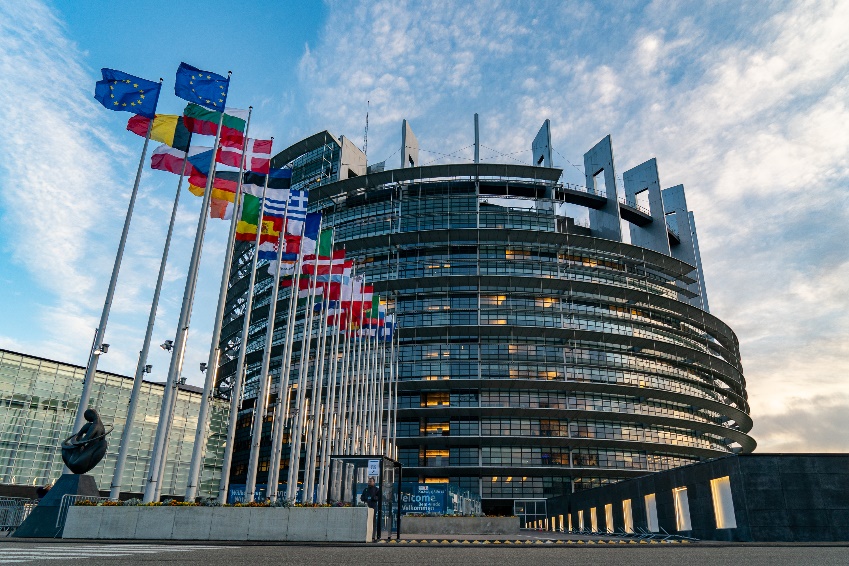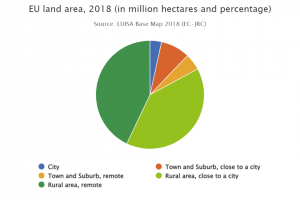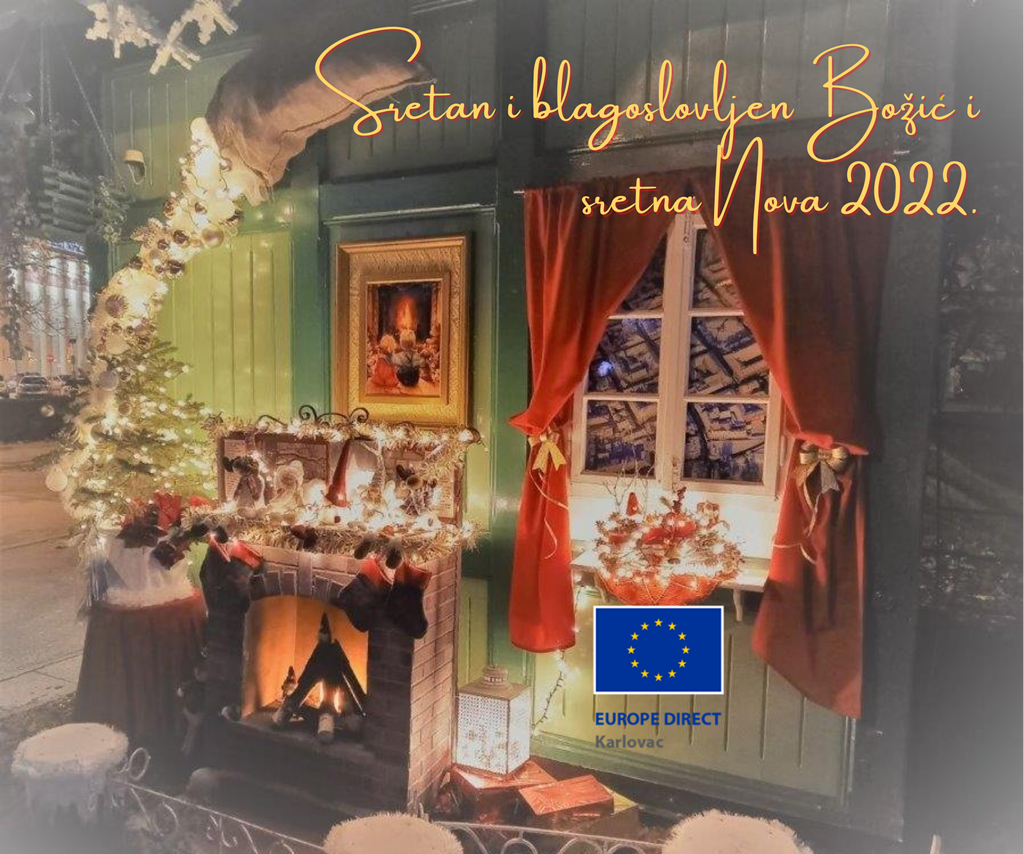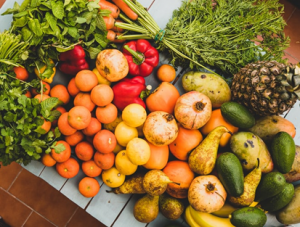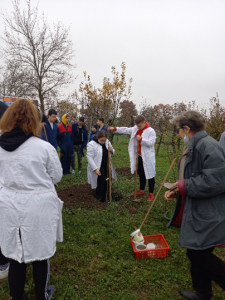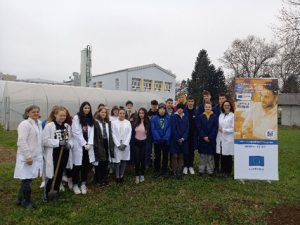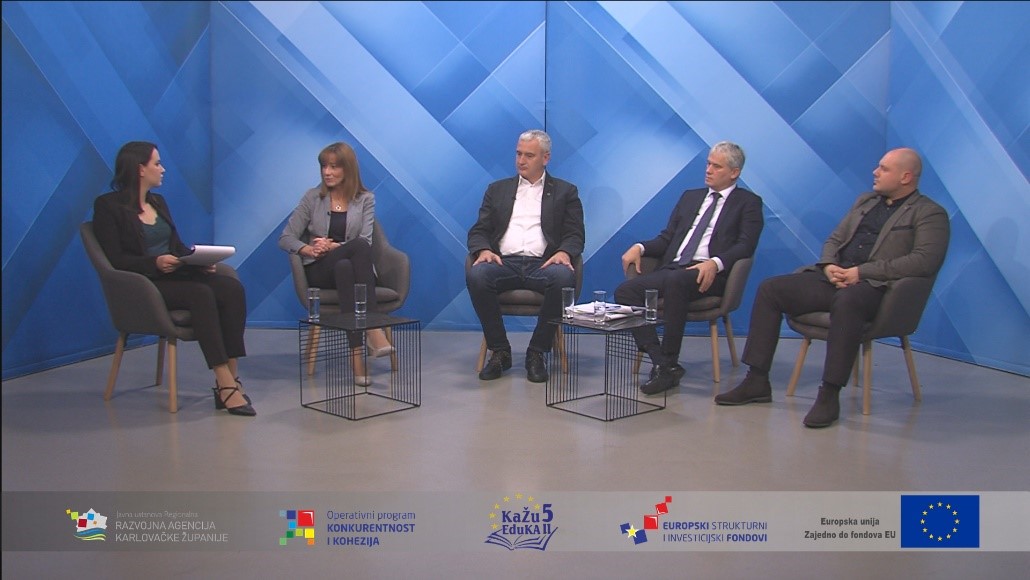Educational conference “From the Recovery and Resilience Plan to Energy Renovation of Buildings”
Ahead of the first public call for energy renovation of buildings under the National Recovery and Resilience Plan,the Representation of the European Commission in Croatia, in partnership with the Ministry of Spatial Planning, Construction and State Property and ZGRADOnačelnik.hr held an educational conference “From the Plan for Recovery and Resilience to Energy Renovation of Buildings”., u partnerstvu s Ministarstvom prostornoga uređenja, graditeljstva i državne imovine i ZGRADOnačelnik.hr održalo je edukativnu konferenciju „Od plana za oporavak i otpornost prema energetskoj obnovi zgrada“.
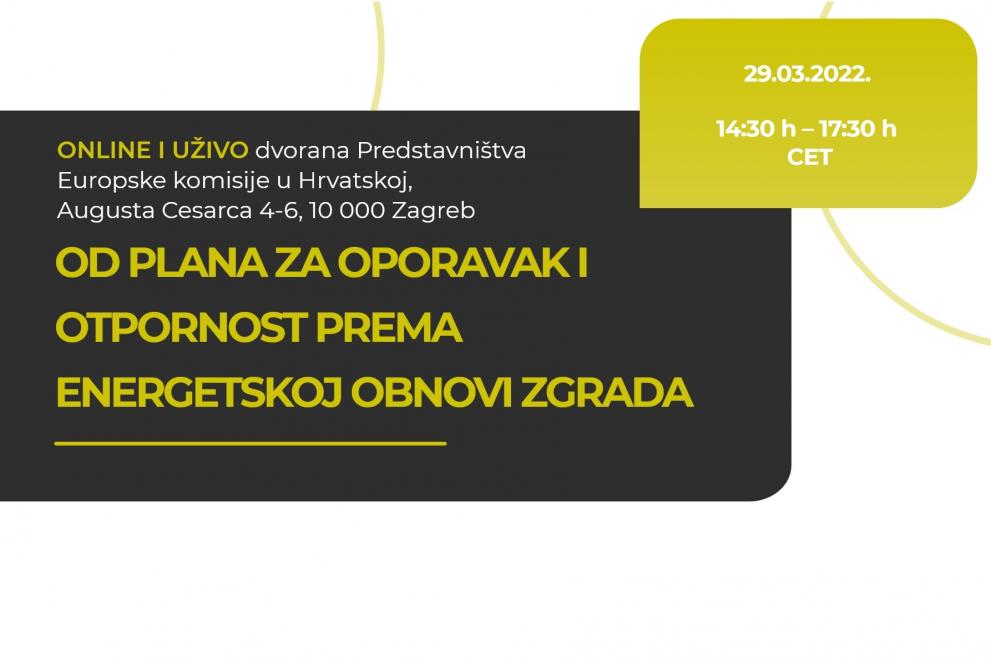
The conference presented the investments and reforms in the area of building renovation foreseen in the Recovery and Resilience Plan, as well as the conditions required to apply for a public call. Video of the entire conference can be viewed here..
Along with the State Secretary of Physical Planning, Construction and State Property Sanju Bošnjak, senior economic advisor at the European Commission Representation in Croatia, Judita Cuculić Župa, senior research associate at the Hrvoje Institute Požar Toni Borković, Domagoj Šešok in front of the Association Manager, GSKG, Antonija Mlikota, representative of co-owners, Natko Bilić, Planetaris and other representatives of the Ministry of Physical Planning, Construction and State Property participated at the conference.
On this occasion, Judita Cuculić Župa, Senior Economic Advisor to the Representation of the European Commission in Croatia, said: "Out of the total amount available to Croatia under the National Recovery and Resilience Plan, EUR 6.3 billion in grants, as much as 40.3 % of the funds are dedicated to investments and reforms that will contribute to achieving climate objectives. A significant part of this is investment in energy renovation of buildings that will reduce emissions of harmful gases, increase the quality of life of citizens and provide high savings on energy bills. The call for energy renovation of residential buildings, which was discussed at today’s workshop, is only the beginning of this process.”
The Ministry of Physical Planning, Construction and State Property by the end of March a public call inviting interested parties to submit project proposals for energy renovation of residential buildings undamaged in the earthquake. For this purpose, funds in the amount of 300 million kuna have been secured.
Today, the European Union is facing a climate and environmental crisis, but also a crisis in the security of gas supply and dependence on its supplier, which explicitly threatens itTherefore, the implementation of the European Green Deal and the transition to renewables must be accelerated.
Energy renovation of buildings is a significant step in this direction. This is the first step towards reducing energy bills and moving building co-owners away from the risk of energy poverty. In line with the objectives of the European Green Deal and with funds from the Recovery and Resilience Facility, the European Commission co-finances energy renovation of residential buildings in Croatia, as part of the National Recovery and Resilience Plan (NPOA).


